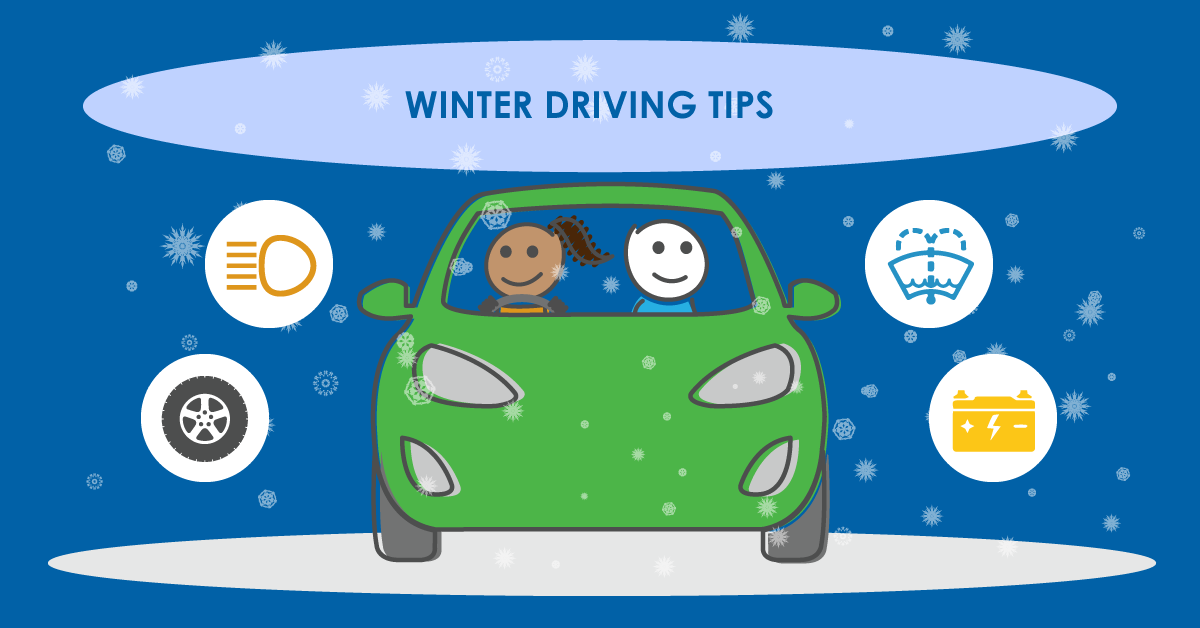
Winter is just around the corner, and we all know winter can bring testing conditions for all drivers, whether it’s light snow, heavy rain or icy roads, we have put together some useful tips to help you drive safe this winter.
Check tyres for adequate tread
Poor tyres will not grip when driving on snow and ice. If you live in an area where snow is common, it might be worth changing to winter tyres with deeper tread. Weather worn tyres can result in aquaplaning and accidents. Charges of up to £2500 for driving without due care and attention can be issued if the tyres are considered unsuitable for the conditions and three penalty points for each tyre that does not meet road standards.
Use a good quality screen wash
Ideally a good screen wash will protect down to at least -35 to prevent the water from freezing. If you don’t, your windscreen wipers could be rendered useless in extreme conditions.
Make sure any auto wiper control is switched off
One you might not have considered but before turning the ignition on, make sure your auto wiper control is switched off as this could blow the wiper control fuse if they are frozen to the screen.
Clear your windscreen
Take the time to adjust your fans, scrape off the ice and clear the snow before starting your journey. Failure to clear your windscreen could land you with a £5000 fine.
Remove snow from the top of your car
Breaking sharply could cause snow to fall onto the windscreen and hamper your vision or another driver’s. If snow from your roof falls onto the road / pavement and endangers other road users and/or pedestrians, you could be held liable under the Road Traffic Act 1988 Section 3 – Careless, and inconsiderate, driving and charged up to £5000.
Plan ahead to save time in the mornings
Consider putting a windscreen cover on your car the night before or getting up a little earlier so you have plenty of time to de-ice your vehicle.
Never pour hot or boiling water on your windscreen
You run the risk of cracking the glass and an expensive repair bill. If you don’t have any de-icer, you could use lukewarm water.
Carry a lock de-icer
If your locks do get frozen, try warming the key or spraying de-icer or an oil-based lubricant into the lock.
Ensure all your vehicle lights, front and rear, are free from frost
A thick film of frost on the lens can affect the intensity of the lights, making it difficult for other road users to see you or your signals.
Don’t leave your car unattended
Leaving your car to idle and unattended whilst you wait for your car to defrost runs the risk of having your vehicle stolen. Furthermore, if you have to park your car on a public road rather than your own driveway and you leave your car to idle then you could be breaking the law. This breaks highway code rules and The Road Traffic (Vehicle Emissions) Regulations 2002 which aims to discourage pollution by turning your engine off rather than idling.
Carry a survival pack in the car
This should include food, water, a blanket, and extra warm clothes.
Ensure your phone battery is fully charged
In the event of breaking down, avoid being stranded by having your phone fully charged so you can call for roadside assistance, make sure to keep an in-car charger.
Have your battery checked
Batteries have to work extra hard in the cold and are more likely to fail so ensure you have a regular service on your car.
Adjust your driving style to the conditions
Be sensible in the rain, snow and ice and plan your journey by checking the latest weather forecast. Above all, in bad conditions consider whether your journey is really necessary.
For more information about looking after your car, take a look at our guides.



